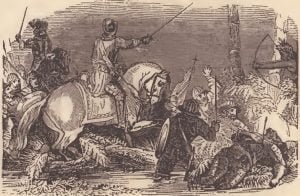Early Indian Wars in Florida
Previous to the permanent establishment of the English in North America, the French and Spaniards made many attempts to get possession of various parts of the country. The coasts were carefully explored, and colonies planted, but they were soon given up as expensive, and involving too much hardship and danger. The first expedition to the coast of Florida was made in 1512, by Juan Ponce de Leon, renowned for his courage and warlike abilities. Ponce de Leon, becoming governor of Porto Rico (Puerto Rico), and hearing from the Indians that there existed a beautiful and fertile country to the northward, … Read more

